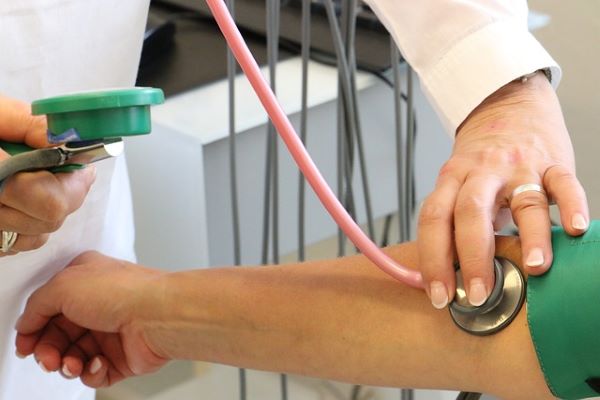High blood pressure, also known as hypertension, is one of the most common health problems in India, affecting both urban and rural populations. According to a study by the Indian Council of Medical Research (ICMR), nearly 30% of the adult population in India suffers from hypertension, making it a leading risk factor for heart disease, stroke, and kidney failure. Despite its prevalence, many myths and misconceptions surround blood pressure problems, leading to confusion and improper management. This article aims to debunk 10 common myths about blood pressure, offering clear, research-based information to help people better understand and manage this condition.
10 Myths About Blood Pressure Problems
Myth 1: High blood pressure always causes noticeable symptoms.
Fact: High blood pressure is often referred to as a silent killer because it usually has no symptoms. Many people may not even realize they have hypertension until they undergo a routine check-up or develop complications like a heart attack or stroke. Regular monitoring is essential for detecting and managing blood pressure problems. (Source)
Myth 2: Low blood pressure is always dangerous.
Fact: Low blood pressure (hypotension) is not always harmful unless it causes symptoms like dizziness, fainting, or shock. Many people naturally have lower blood pressure without any adverse effects. However, if hypotension causes symptoms, it’s important to address the underlying cause, such as dehydration or medication.
Also, read: Now Debunking 10 Common Dementia Myths
Myth 3: If you have high blood pressure, you should avoid exercise.
Fact: Exercise is actually one of the best ways to manage high blood pressure. Regular physical activity helps to lower blood pressure over time and improves overall heart health. It is important to consult a healthcare professional for guidance on the types of exercise that are safe based on your condition. (Source)
Myth 4: Salt is the only factor that affects blood pressure.
Fact: While high sodium intake is a major contributor to high blood pressure, other factors like obesity, lack of physical activity, stress, smoking, and alcohol consumption also play significant roles. Reducing salt alone may not be enough; a holistic lifestyle approach is necessary for managing hypertension.
Myth 5: You don’t need to worry about high blood pressure until you’re older.
Fact: Hypertension can affect people of all ages, including younger individuals. With the rise of unhealthy lifestyles, stress, and poor diets, younger adults in India are increasingly being diagnosed with high blood pressure. Early detection and lifestyle modifications are crucial to preventing long-term complications. (Source)
Myth 6: If you feel fine, your blood pressure must be normal.
Fact: Blood pressure can be high without causing noticeable symptoms, which is why it is often called a silent condition. Regular blood pressure checks are essential, even if you feel perfectly healthy, to catch any abnormalities early and prevent complications.
Myth 7: High blood pressure is only a problem if it’s constantly elevated.
Fact: Fluctuating blood pressure can be just as dangerous as consistently high blood pressure. Sudden spikes in blood pressure, often triggered by stress or anxiety, can damage blood vessels and increase the risk of heart disease and stroke. Monitoring trends in blood pressure over time is more important than occasional high readings. (Source)
Myth 8: You should stop taking your blood pressure medication if your readings are normal.
Fact: Blood pressure medications help maintain normal levels, but that doesn’t mean the underlying condition is cured. Stopping medication without consulting a doctor can lead to dangerous spikes in blood pressure. Always follow your doctor’s instructions regarding medication.
Myth 9: High blood pressure is inevitable as you age.
Fact: While the risk of developing high blood pressure increases with age, it is not inevitable. By maintaining a healthy lifestyle—eating a balanced diet, exercising, limiting salt and alcohol intake, and managing stress—you can significantly reduce the risk of hypertension, even as you get older. (Source)
Myth 10: High blood pressure runs in families, so there’s nothing you can do about it.
Fact: Although genetics play a role in hypertension, lifestyle choices are just as important, if not more so. Even if high blood pressure runs in your family, you can take preventive measures like eating a heart-healthy diet, staying physically active, and avoiding smoking to reduce your risk.
FAQs on Blood Pressure Problems
Q1: How often should I check my blood pressure?
A1: If you have normal blood pressure, it’s recommended to check it at least once every two years. However, if you have hypertension, your doctor may recommend more frequent monitoring.
Q2: Can high blood pressure be reversed?
A2: While high blood pressure cannot always be “cured,” it can be effectively managed and controlled with lifestyle changes and medication.
Q3: Is high blood pressure more common in urban or rural areas of India?
A3: High blood pressure is becoming increasingly common in both urban and rural areas due to lifestyle changes, though it is more prevalent in urban populations due to factors like stress and diet.
Q4: Does hypertension affect children?
A4: Yes, children can develop high blood pressure, especially if they are overweight or have a family history of the condition. Regular monitoring and a healthy lifestyle can help prevent hypertension in children.
Q5: What is the best diet to manage blood pressure?
A5: A DASH diet (Dietary Approaches to Stop Hypertension) rich in fruits, vegetables, whole grains, and low-fat dairy products is recommended for managing blood pressure.
Conclusion
Blood pressure problems are highly prevalent in India, but many misconceptions can prevent people from managing them properly. By debunking these myths and spreading awareness, individuals can take the right steps towards monitoring and controlling their blood pressure. Regular check-ups, a balanced lifestyle, and proper medication can go a long way in preventing complications from hypertension.





